Critics on Reviews
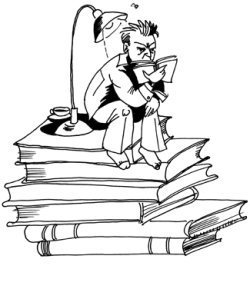
Reviewers are accused of having agendas and of cronyism, are called show-offs and career-killers. It's a lot of heat to take for some free books, a few bucks, and a byline.
Jump to navigation Skip to content
Articles from Poet & Writers Magazine include material from the print edition plus exclusive online-only material.

Reviewers are accused of having agendas and of cronyism, are called show-offs and career-killers. It's a lot of heat to take for some free books, a few bucks, and a byline.
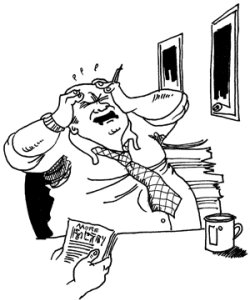
Book review editors—those powerful yet inundated tastemakers who choose from the more than 130,000 new books published each year the mere shelfful that are reviewed—get used to (and bored with) having nasty motives ascribed to them. This second installment of a three-part series on book reviews examines the subject at hand from the perspective of the assigning editors, who would like to set the record straight.

mong organizations hit hardest during the post-9/11 era, in which funding for the arts has been sharply curtailed, literary nonprofits are struggling to simultaneously serve their missions and remain solvent. Despite the economic downturn, two nonprofit organizations—Milkweed Editions, a small press based in Minneapolis, and the St. Mark's Poetry Project in New York City—have maintained financial stability, but more challenges lie ahead: The directors of both organizations, Emilie Buchwald and Ed Friedman, recently retired.
Page One features a sample of titles we think you'll want to explore. With this installment, we offer excerpts from A Million Little Pieces by James Frey and Big Back Yard by Michael Teig.
They don’t command the best-seller lists, nor do they show up on reviewers’ desks, but the classics—those books of enduring quality that year after year grace high school and college syllabi and circulate in community book clubs—are the cash cows of the publishing industry: reliable, predictable, and above all, steady sources of revenue. Penguin Classics, Oxford World’s Classics, Bantam Classics, Dover Publications, and the Modern Library are among the leading publishers of their kind in the United States. This spring, Barnes & Noble joined them with its own imprint: Barnes & Noble Classics.
Literary MagNet chronicles the start-ups and closures, successes and failures, anniversaries and accolades, changes of editorship and special issues—in short, the news and trends—of literary magazines in America. This issue's MagNet features the Believer, Partisan Review, Mid-American Review, the Paris Review, One Story, 32 Poems Magazine, and Tin House.
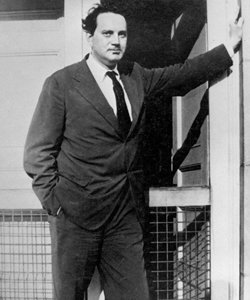
Five years ago, in the early morning of July 24, 1998, Thomas Wolfe’s childhood home in Asheville, North Carolina, was nearly destroyed by fire. Since then, conservation specialists and staff at the Thomas Wolfe Memorial have worked to reconstruct the museum and hope to reopen it this fall.
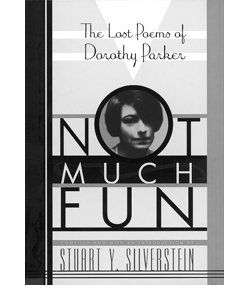
On April 4, United States District Court Judge John F. Keenan ruled in favor of Stuart Y. Silverstein in a plagiarism suit he filed against Penguin Putnam in 2001. Silverstein, who compiled Not Much Fun: The Lost Poems of Dorothy Parker (Scribner, 1996), claimed in his lawsuit that Penguin infringed on his copyright by publishing Dorothy Parker: Complete Poems, which includes a section titled “Poems Uncollected by Parker,” the identical poems published in Not Much Fun.
D.H. Lawrence returned to Italy in 1927 after a soul-searching journey through Mexico, the American Southwest, Ceylon, Australia, and New Zealand. Gravely ill with tuberculosis, unaware of how little time he had left (he died three years later at the age of 44), Lawrence sought an ideal land where he might flourish as a "whole man alive" and find an antidote for the alienation of industrialized society.
Mark Doty's work has always straddled the line between a sense of belonging and alienation, so it's no surprise to find the crucial question, Where do I live? at the heart of his forthcoming book
Should an author simply count herself lucky to have landed a book deal, or should she fight for what she wants during the various stages of publishing it—the editing process, cover design, and promotion? Before deciding, it's important to understand what obstacles might stand in the way before encountering them and what to expect from all the effort.
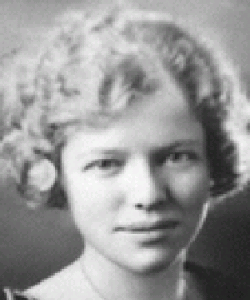
This year marks the centennial of Niedecker's birth. To celebrate, libraries and bookstores in her home state are planning a series of events that will draw poets, scholars, and readers to the places that inspired and influenced her poetry.
An author recalls his reaction to reviews of his first book.

Amanda Davis, author of the short story collection Circling the Drain and cornerstone presence to many in and beyond the literary world, died in a plane crash on March 15, 2003, while on tour promoting her first novel, Wonder When You'll Miss Me.
Literary MagNet chronicles the start-ups and closures, successes and failures, anniversaries and accolades, changes of editorship and special issues—in short, the news and trends—of literary magazines in America. This issue's MagNet features Maize, Our Time Is Now, UR-VOX, Smartish Pace, and the Beloit Poetry Journal.
Last month Jonathan Tasini, who is recognizable to most writers due to his association with the high-profile lawsuit against the New York Times, resigned as president of the National Writers Union, an advocacy group for freelance writers and is now heading the Creators Federation, an international coalition of writers and artists working in all media and the organizations that represent them.

The UN has declared the next ten years the UN Literacy Decade. During this period the United Nations Educational, Scientific, and Cultural Organization will initiate its "International Plan of Action," designed to mobilize national governments, public and private organizations, universities, and local communities to create literacy programs, research who will most benefit from such programs, and find ways to monitor their success so that they can be improved upon and replicated elsewhere.

The ninth novel and eighteenth book by Harry Mark Petrakis, who turns 80 on June 5, will be published by Southern Illinois University Press in the same month. Twilight of the Ice is set in the Chicago railyards, in the blue-collar, industrial neighborhoods of the early 1950s. In this elegy to a rough crew of railroad car icemen facing obsolescence in the advent of modern refrigeration, the Chicago author who was twice shortlisted for the National Book Award again finds nobility in the struggles of immigrants and working people.
Colum McCann's most recent novel, Dancer, published by Henry Holt in January, reimagines the life and the international milieu surrounding the Russian ballet dancer Rudolf Nureyev, who died in 1993.
When James Merrill died in 1994, he willed his large, turn-of-the-century house on Water Street to the Borough of Stonington, Connecticut. The village improvement committee was free to use the building any way it desired; Merrill made no stipulation in his will. But the National Book Award–winning poet had been an important figure in the village's ongoing literary tradition. The committee decided to keep Merrill's legacy alive by creating a writer-in-residence program. Since 1996, a lucky poet or scholar has lived, for either six months or a full year, in Merrill's curious home across from the harbor. Writers chosen for residency are notified more than a year in advance. Several Merrill House residents have reported "the happiest period of my life," surrounded by Merrill's books and knickknacks, far removed from the snarl of city life—Boston, New York, or Louisville, in our case.

Careful storytelling, along with careful marketing, has helped American Lives—the memoir series at the University of Nebraska Press—attract the attention of talented authors, national reviewers, and bookstore sales reps.
Literary MagNet chronicles the start-ups and closures, successes and failures, anniversaries and accolades, changes of editorship and special issues—in short, the news and trends—of literary magazines in America. This issue's MagNet features Rosebud, Pleiades, Fizgig, American Letters & Commentary, Shiny, Brevity, and Canary River Review.
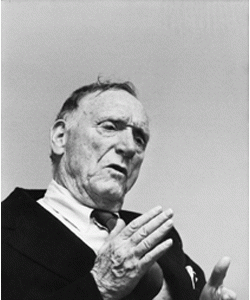
During the past year, poets laureate have been the unlikely recipients of national media attention. New Jersey's Amiri Baraka was excoriated for reading a poem that some labeled anti-Semitic, and California's Quincy Troupe resigned after inaccuracies were discovered on his resumé. With their public profiles growing, the role of poets laureate is being called into question. In April the nation's first conference for state poets laureate will convene in Manchester, New Hampshire, where they will discuss poetry and their responsibilities as public representatives of their art.
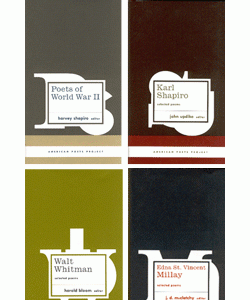
To coincide with National Poetry Month, the Library of America, a nonprofit publisher of American classics, will launch the American Poets Project, a new series of books devoted to individual poets and anthologies exploring particular themes, genres, and eras.
Anthologies compiled annually by editors who scan diverse sources and publish the poems they deem “the best,” are quickly gaining popularity worldwide. The latest of these is an online publication called Best New Zealand Poems.